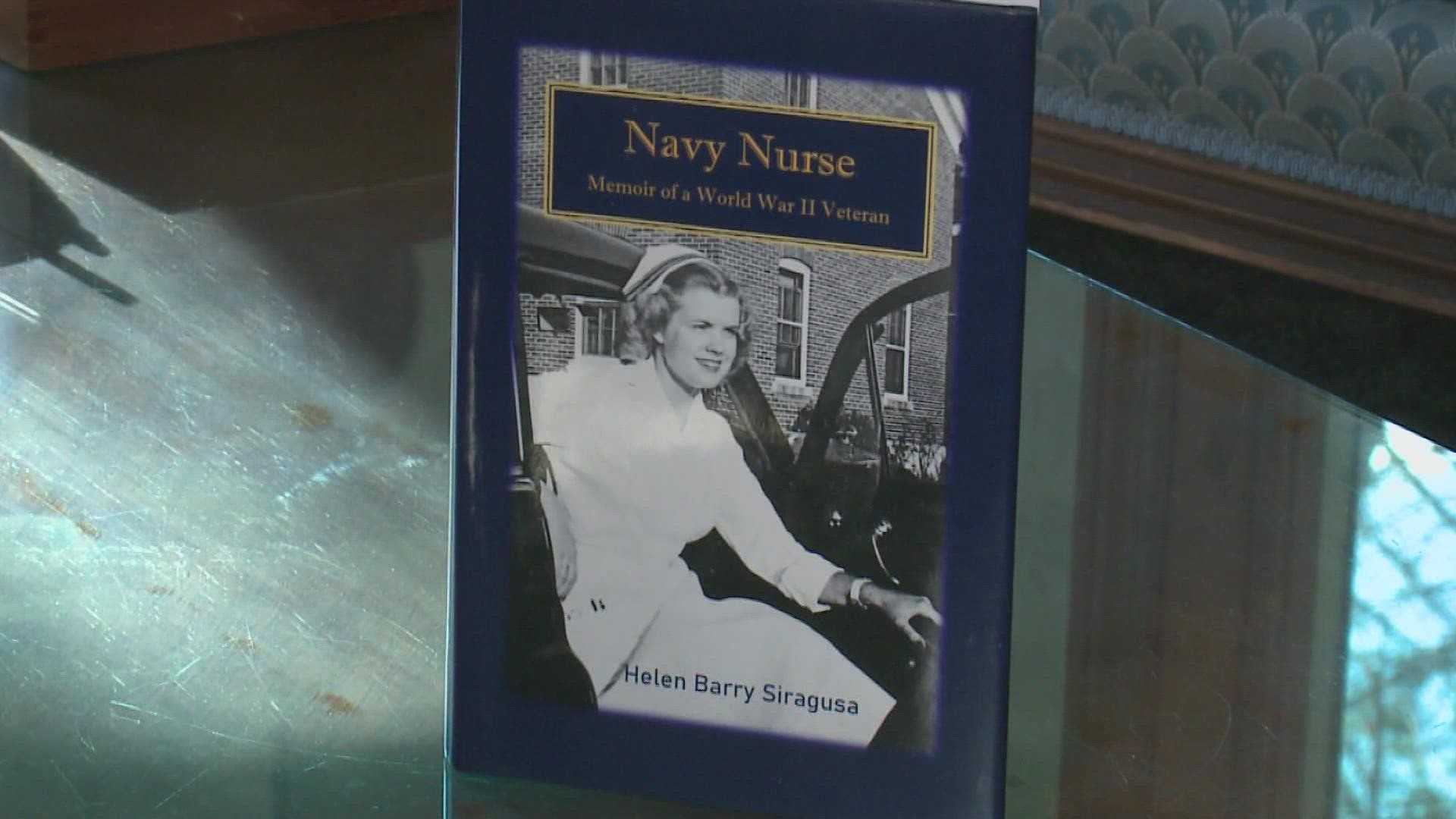PORTLAND, Maine — A brilliant November sun sparkled on the lake in front of Helen Siragusa’s home, as she reflected on life in the 1940s when she was studying to be a nurse.
The young New Jersey native was Helen Berry then, eager to join the nursing profession and the U.S. Navy.
“My two brothers were in the Navy, and my father was in the Navy in World War I,” she explained.
After World War II broke out, there was little doubt she would follow the family tradition.
“In our school, we had a poster on the wall that was a picture of a Navy nurse and said 'The Navy Needs Nurses,'" Helen said. "And every time I saw that poster it kept reinforcing me.”
As soon as Helen graduated from nursing school, she signed up and soon was an ensign, the lowest officer rank. She was assigned to a hospital in New York. There, her primary assignment became caring for young sailors and Marines in ward B-11, for paraplegics and quadriplegics.
They were all young men, and all had all suffered acute injuries, either in accidents or combat.
“And not likely to get better? None of them were going to get better,” Helen said
She said she was intimidated to work in the ward at first but forced herself to do it.
“And I said I have to go back the next day. You never say 'no' in the Navy, and you have to show up. So I went back the next day, and it was fine.”
So fine, in fact, she stayed working on that ward for more than three years. It was a place, Helen said, where nurses and their patients formed a bond like family, a bond so tight she remembers names and details of their injuries and care even today, 76 years after the war.
It's all recorded in her new book, "Navy Nurse: Memoir of a World War II Veteran," dictated by Helen and ghostwritten, or at least transcribed, by her son, Jim, a retired English teacher.
“My mother’s got an incredible memory,” he said. “She’s a natural storyteller.”
Helen dictated the stories of her life to him over several years. Jim then transcribed those and organized them into a book.
It includes a detailed chapter on Ward B-11 and the sailors and Marines who became her friends. She told of one young quadriplegic she cared for:
“I started calling him Sweetie, and he would say, 'Don't call me that!' But pretty soon everyone else on the ward called him Sweetie, but he had grown to like it."
Helen recalled that, years later, the patient would occasionally call her, just to talk.
“When he went home to Newburg he would call me up and say 'Hello, it's Sweetie.'”
Helen eventually was transferred to another hospital at the Cherry Point Marine Base where she met her future husband, a Navy doctor. They eventually left active duty and moved to Massachusetts to raise a large family.
The cottage on the lake was part of their family life for years and then became the couple’s retirement home.
Helen said despite her 6 1/2 years in the Navy, and her husband's service as well, which included a year in Korea, she had never thought of herself as a veteran until fairly recently.
“I was never in danger. You think of veterans as someone who survived. They went in harm’s way, could have been shot. I was never in harm’s way.”
But as the new book makes clear, Helen was as much a member of the military as sailors at sea.
And when it comes to the Navy, a visitor only has to look at the old recruiting posters on her kitchen wall — including that one about nurses.
With increased attention and respect for women veterans in recent years, the former Navy nurse thinks differently now about being a veteran.
“I’m proud of it and delighted, but I didn’t do it to be praised," she said. "I did it because it was natural for me to go in the Navy in my family.”
More about "Navy Nurse: Memoir of a World War II Veteran" is available here.

